MASTER DEGREE OF
APPLIED LINGUISTICS
The basis for compiling the curriculum for doctoral and master programs at Postgraduate of UNJ refers to the level of the Indonesian National Qualifications Framework (hereafter KKNI) level 8 for the master program according to the Academic Guidebook (Buku Panduan Akademik – BPA) of the UNJ Postgraduate Program. The curriculum component at Postgraduate of UNJ consists of general courses, expertise courses, elective courses, matriculation courses, and a thesis/dissertation. General courses are a group of courses that discusses the general/basic knowledge pertinent to the various disciplines pertinent to, in this case, applied linguistics. General courses are directed at improving the ability to carry out, organize, and manage research programs in accordance with the educational objectives of the study program. These are obtained by the first semester students of all study programs.
Expertise courses are a group of courses related to the study of various (read also: inter-) disciplines related to, in this case, applied linguistics. These aim to produce experts based on the knowledge and skills mastered. Expertise courses are obtained by students in the second semester. Elective courses are part of the study program courses group. Students may choose these courses (minimum two courses) that go in line with the field of their thesis topic. A master thesis is the master student’s final project as one of the requirements prior to graduation, whilst a dissertation is for a doctoral program. Master thesis and dissertation are scientific works obtained from the results of research to solve problems and discoveries in their fields. Students undertakes thesis subject in the fourth semester. The fundamental difference between the master program and the doctoral program of UNJ is on the implementation of the final project research. When registering for a doctoral program, students must have a topic and research plan that will be carried out for their final project or dissertation. The doctoral students starts their research journey on the first semester. As for the master students, their research journey starts on semester three after they complete all the courses required and joining the colloquium course. As implicitly mentioned on our self-evaluation report (SER), this course is to facilitate the students with the following competence: to identify the reliable and credible references (predominantly reputed journal articles) – this is important as this marks their first step prior to formulating their writing on chapters one and two of their master thesis proposal.
The time schedule for all the teaching and learning process at UNJ is based on the academic calendar stipulated before the semester begins. The academic year consists of the odd semester, even semester, and intermediate semester. The latter starts in September and ends in August of the following year. The odd semester starts in September and ends in February, whilst the even semester starts in March and ends in August of the same year (Permenristekdikti, No. 42/2018 about UNJ Statute). These are all regulated based on UNJ’s Dean regulations regarding the academic regulations and guidelines for the UNJ postgraduate school contract. The academic guide itself includes the curriculum.
Permenristekdikti, No. 42/ 2018 about UNJ Statute defines curriculum as a set of plans and arrangements regarding the objectives, content, teaching materials, and methods used as guidelines for implementing learning activities to achieve educational goals. These are compiled and developed by each study program based on the development of science and/or technology-based as the national higher education standards, teacher education standards, Indonesian national qualification frameworks, and international quality standards required (see Permenristekdikti, No. 42/2018 about UNJ Statute). In addition, our curriculum development also pays attention to global demands and challenges (scientific vision), societal needs, stakeholders, business, and industry, as well as the principles of comprehensive self-evaluation. This can be seen for instance from the postgraduate school’s (and/or study program’s) annual meeting concerning the curriculum development based on postgraduate school’s tracer study, the stakeholder’s satisfaction survey and benchmarking with other universities in Indonesia and overseas. The involvement of practitioners of relevant fields can be seen, for example, from several activities, such as studium generale, webinar series, international conferences/seminars held by the postgraduate school, etc.
Study Program Profile
Applied Linguistics Master Program had attained a rank “B” status from the National Accreditation Board for Higher Education (Badan Akreditasi Nasional Perguruan Tinggi or BAN-PT) in 2017 under Decree No. 3882/SK/BAN-PT/Akred/M/X/2017. This status was received as its first accreditation submission since its operation permit (No. 4903/D/T/2006) issued on December 21, 2006 by the Directorate General of Higher Education, the Ministry of Education and Culture of Indonesia. In 2022, this study program will be re-accredited.
Applied linguistics itself is by its nature an interdisciplinary field of study that connects language studies (theoretical) with real practice (empirical studies), which places language as a central issue (Brumft, 1995). In the 1980s, applied linguistics was identified as the field closely juxtaposed with teaching, learning, and language acquisition. However, in its development, applied linguistics is no longer limited to these three studies. It intertwines with other disciplines, such as the media (for example, in media discourse and media communication), translation, language planning, law, etc. It adopts a language study perspective, such as (critical) discourse analysis, linguistic ethnography, sociocultural theories, literacy, stylistics, and sociolinguistics. Applied linguistics draws its studies from scientific traditions, such as cognitive linguistics, corpus linguistics, generative linguistics, and systemic functional linguistics (Simpson, 2011). By this, in answering the question “the extent the cross-subject nature can be reflected on the assessment” can be seen in the assessment process as well as the documentation of each course (see the assessment documentation). However, the assessment results have not yet been supported by the quality assurance process, i.e., the extent this implicates the graduates’ employment in their professional work or other pertinent evaluation methods.
The curriculum of our study program is designed based on the Indonesian National Qualification Framework. Our national framework for qualification ranking juxtaposes, equalizes, and integrates various education fields, job training, and work experiences (Ministry of Research, Technology, and Higher Education Decree No. 3/2020, Chapter 1, Article 1, Paragraph 4). This qualification is designed to meet the market demand, i.e., the graduates’ competencies that comply with the job structures in various sectors) issued by the Ministry of Education and Culture of Indonesia. In this sense, our curriculum can arguably be perceived as a reflecting outcome-based education. Our master program operates within this framework, particularly based on Indonesian National Qualification Framework level 8, i.e., the graduates should be able to develop knowledge, technology, and arts in their respective disciplines; able to solve scientific, technological, and artistic problems through the deployment of inter-/trans-/multi-disciplinary approaches; able to manage research and development that are beneficial to society and science as well as gain national and international recognition. National Standards for Higher Education 2020 is also deployed as one of the policy references that regulates our university’s business process and the study program. Based on this curriculum framework (based on Indonesian National Qualification Framework level 8 and National Standards for Higher Education 2020), it can be argued that the level of our curriculum is on the level, i.e., to broaden or deepen the students’ existing knowledge based on their prior education.
Teaching Staffs
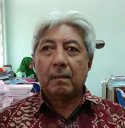
Dr. Shafruddin Tadjuddin, M.A.
Coordinator of Master Degree of Applied Linguistics Study Program
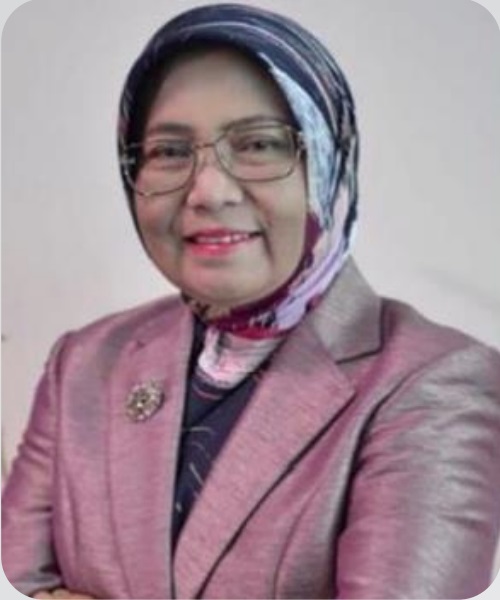
Prof. Dr. llza Mayuni, M.App.Ling.
Professor in language education
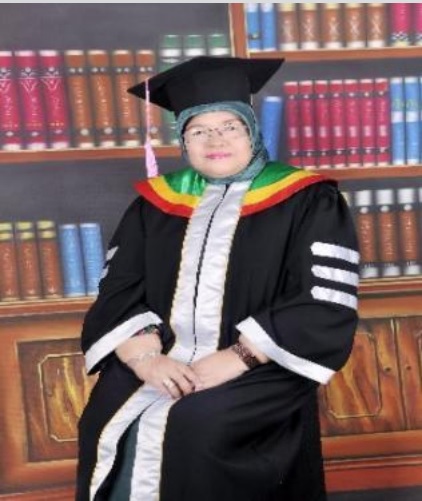
Prof. Dr. Yumna Rasyid, M.Pd.
Morphology and Arabic Syntax, Curriculum Development and Language Teaching Materials, Discourse Analysis.
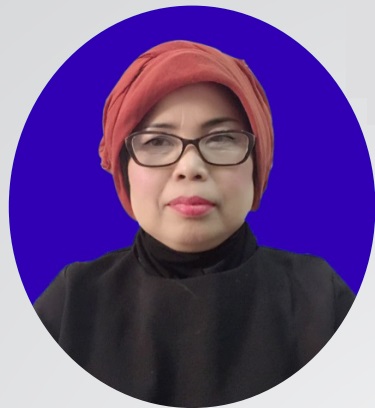
Prof. Dr. Endry Boeriswati, M.Pd.
Professor in language education
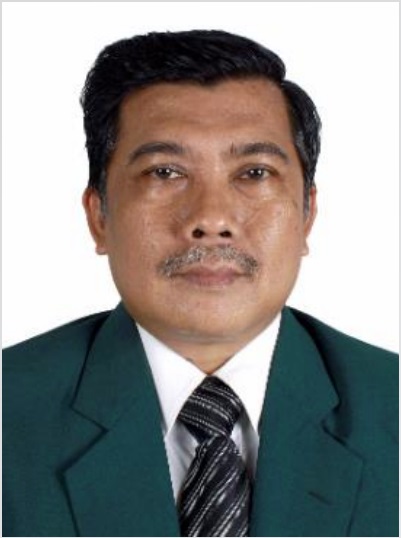
Prof. Dr. Aceng Rahmat, M.Pd.
Professor in language education
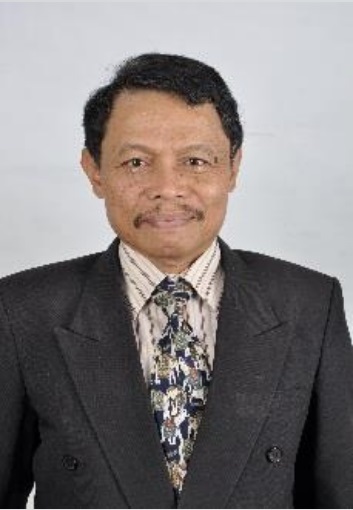
Prof. Dr. Zainal Rafli, M.Pd.
Methodology of Language Learning, Evaluation of Language Learning, Psycholinguistics / Sociolinguistics
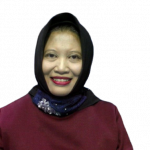
Prof. Dr. Novi Anoegrajekti, M.Hum.
Professor in language education and literature

Prof. Dr. Ninuk Lustyantie M.Pd.
Professor in Learning Language and Literature
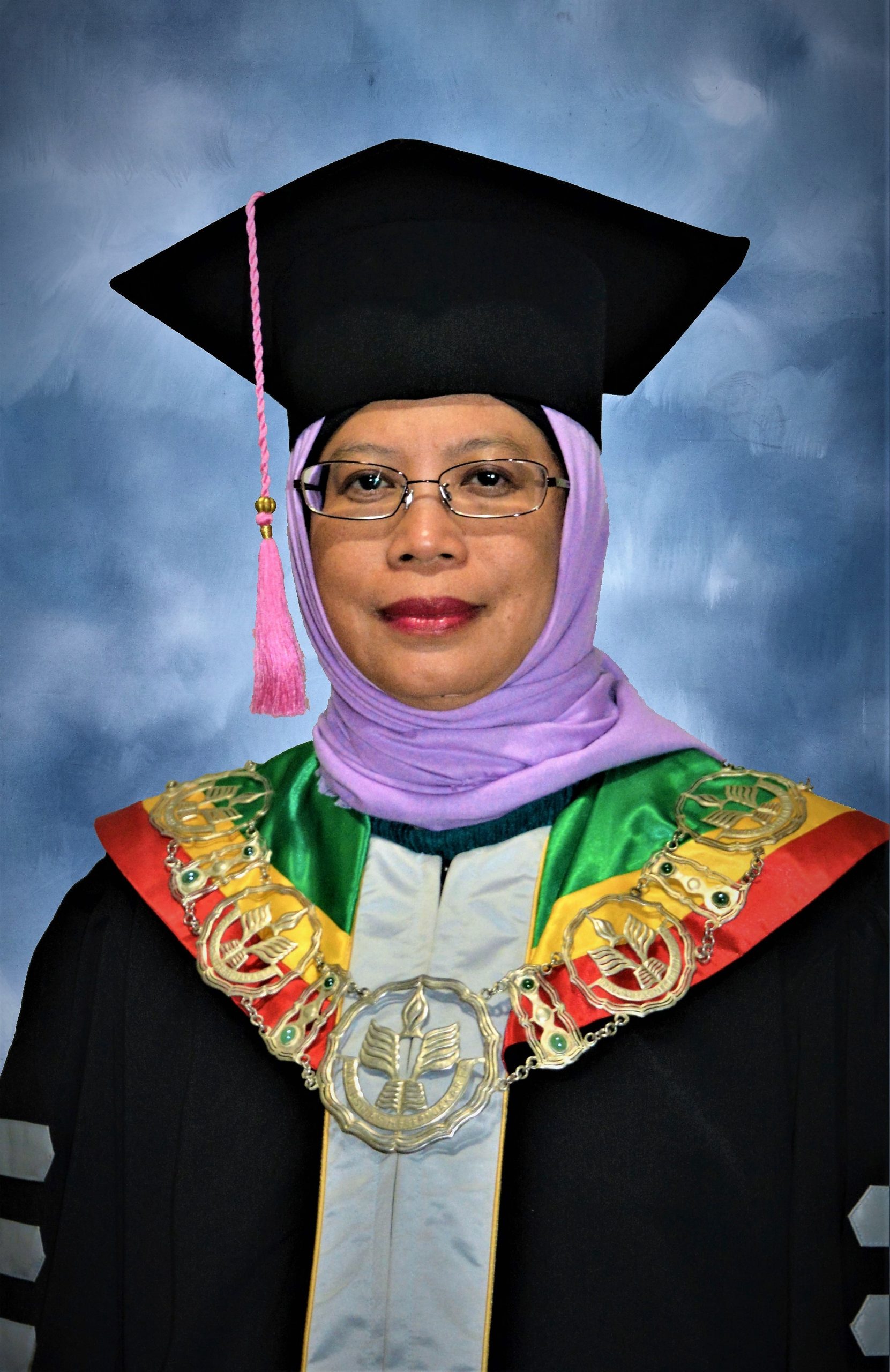
Dr. Liliana Muliastuti, M.Pd
BIPA Teaching, General Linguistics, Error Analysis Psycholinguistics, Semantics, Curriculum and Teaching Material Development
Objectives

To bring forth graduates who, in their early career’s, become professionals in the various related applied linguistics fields, such as translator, researcher, educational practitioner, and content specialist with the following attributes:
- able to develop their knowledge and skills in applied linguistics – translation studies, studies on language and literature teaching, language and cultural studies through research;
- able to develop interdisciplinary research in applied linguistics, which include translation studies, studies on language and literature teaching, language and cultural studies in order to produce innovative and proven problem solving;
- have the competences in managing and developing their research results in applied linguistics for the attainment of national and/or international acknowledgement;
- have good understanding of professional, ethical, socio-cultural responsibilities in various related fields of applied linguistics;
- have good interpersonal and professional competences in building, maintaining and expanding networks with related institutions, such as research and training institutions, local government, professional organizations, and inter-disciplined practitioners/ professionals.
Curriculum & Courses
The followings reflect the applied linguistics master program curriculum:
- General courses deals with general/basic knowledge pertinent subjects that underlies the formation of knowledge development abilities which later lead to the relevant acquired skilled in the targeted workplaces of our graduates. General courses are directed at building the ability to carry out, organize, and manage research programs following the educational objectives of the applied linguistics master program. General subjects must be mastered by each student from all study programs in the postgraduate school.
- Expertise Courses is a group of courses related to the study of various (read also: inter-) disciplines related to applied linguistics. These aim to produce experts based on the knowledge and skills mastered.
- Elective Courses are part of the study program courses group. Students may choose these courses (minimum two courses) that go in line with the field of their thesis topic.
- Thesis is the results from scientific work/research that meets the criteria of scientific research and disciplines of applied linguistics. This may also be seen reflecting the student’s effort to solve problems and disclose scientific findings or develop new concepts.
Program Learning Outcomes
- Able to master the philosophy of linguistics, linguistics/language theory, research methodology, translation studies, language and literature teaching studies, and language and cultural studies;
- Able to analyze scientific theories/conceptions/ideas and contribute to the development and practice of science and technology in applied linguistics by proffering and implementing humanities values;
Able to formulate scientific and technological arguments and solutions in applied linguistics based on academic ethics as well as a critical view of facts, concepts, principles, or theories that can be scientifically accounted for; - Able to produce research in applied linguistics based on scientific methodology and logical, critical, systematic, and creative thinking;
- Able to develop research road maps with inter/multi/trans disciplinary approaches, based on previous relevant studies;
- Able to disseminate the results of research in applied linguistics through accredited national journals and reputable international or non-electronic mass media;
- Respect pluralism, diverse cultures, religions, and beliefs, as well as the original opinions or findings of others;
- Internalize academic values, norms, and ethics; dan
- Able to actively communicate and participate in the development of professional networks.
Graduate Profile
Translator
competent translator in mastering relevant applied linguistics concepts, theories, and application in conjunction with translation studies, conducting research on translation studies, and who has good understanding of professional, ethical, socio-cultural responsibilities in translation studies.Educational Practitioner
A competent teacher/educational practitioner in language who is able to develop knowledge and skills in studies on language and literature teaching, able to conduct relevant research within the field of language and literature teaching and learning, and has good understanding of professional, ethical, socio-cultural responsibilities.
- Content Specialist
A competent content specialist who masters relevant applied linguistics theories, concepts and application pertaining to identifying topics, fact-checking, analyzing sources to generate ideas, writing and editing content, and has good understanding of professional, ethical, socio-cultural responsibilities.
Academic
Activities
Master Degree of Applied Linguistics
Study Program Academic Activities
Students Learning Outcomes
Master Degree of Applied Linguistics
Students Learning Outcomes.
Lecturer Academic Outcomes
Lecturer academic outcomes of Master Degree of Applied Linguistics
